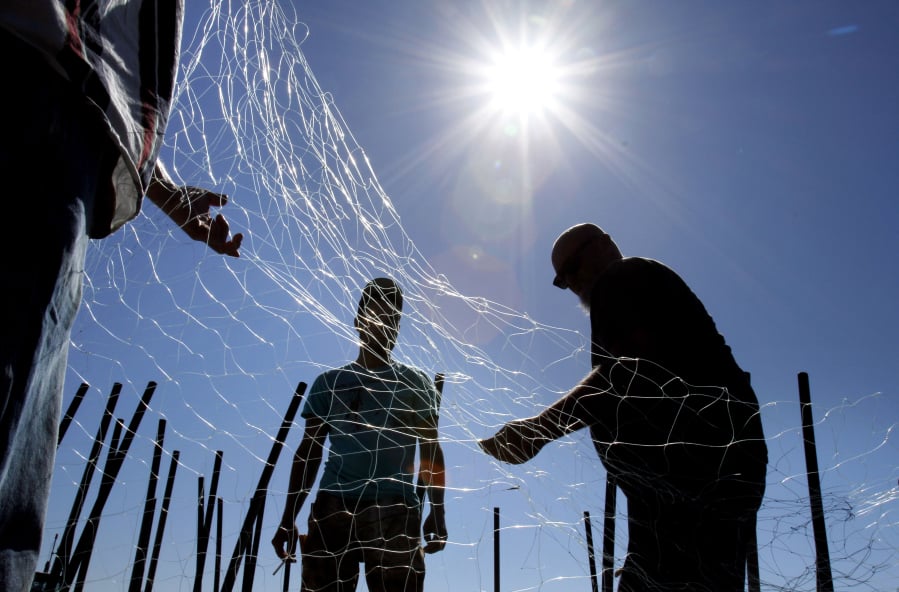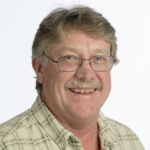In a vote that has angered the sport fishing community, the Washington Fish and Wildlife Commission (WFWC) has voted to alter the Columbia River Salmon Policy 3620, known as the Columbia River Reforms, concerning the use of gillnets in the main stem Columbia River.
The vote was held on March 2 in Spokane.
The changes to the policy follow a five-year review, and recommendations from a joint-state task force that is composed of three commissioners from both states.
The alterations approved by the Commission include Washington agreeing to allow gill nets in the main stem Columbia below Bonneville Dam this fall under rules similar to 2018. In order to achieve concurrency between the two states, the commercial and sport allotments of the fall run of chinook was finalized at 30 percent commercial harvest, and 70 percent sport harvest.
Oregon rules called for a 30/70 split, while the Washington ratio was 20/80. The Washington rules were changed to achieve concurrency with Oregon.
Gill nets would not be allowed in the mainstem Columbia during the spring and summer Chinook runs, unless those runs come in well above the forecasts, an unlikely scenario this year.
The vote applies only to 2019. The joint state task force will soon consider changes that would extend into coming years.
Washington commissioners that voted to approve the changes include Kim Thorburn, Barbara Baker, Robert Kehoe, Donald McIsaac and Jay Holzmiller.
Commissioners Bradley Smith and Larry Carpenter abstained, and David Graybill voted no.
Many recreational fishermen were especially angry that the vote was held in Spokane, 300 miles from the lower Columbia River, where the affected fisheries will take place.
Those include Larry Cassidy of Vancouver.
“I just think it’s a great mistake to go up to Spokane and pass a major policy decision on the lower Columbia instead of holding the meeting in Longview or Vancouver where all the parties involved can have a say in what they were proposing, and subsequently passed,” said Cassidy.
“I just think that is very poor judgement on the commissions part,” he added.
The original reform package was driven by a voter initiative (Measure 81) offered by the Coastal Conservation Association (CCA) in 2012..
The CCA’s Nello Picinich derided the recent vote.
“We were disappointed with the commission vote,” said Picinich. “First, reversing course on a policy that was the result of thousands and thousands of hours in development with experts and folks from all across the board: recreational fishermen, commercial fishermen, commissioners from both states, and the DFG directors of both states were involved.”
“For them to take this vote now, with a handful of commissioners, it’s a sham. The gun was already loaded on how they were going to vote,” he added.
Commercial fishermen respond
Commercial fishermen take a different perspective.
Hobe Kytr of Salmon For All, a commercial fishing advocacy group, sees the action as appropriate.
“The policy that was enacted at the request of former Oregon Governor John Kitzaber has been a failure from the very beginning,” said Kytr. “It was a matter of putting a policy in place and then trying to find the scientific facts to back up the policy.”
Kytr reflects that consumers should have a right to these fish, too, because many salmon recovery dollars come from non-fishermen.
“This is a step in the right direction,” said Jim Wells, the current president of Salmon For All, “The plan is moving forward the way it was designed. Included in the plan is adaptive management as a path forward.”
“Even the Washington staff said (policy 3620) was a failure.”
Wells also objects to the way many recreational anglers seem to view this as a big win for gillnetters. He points out that before the reforms the commercial fleet was allowed a much heavier allotment of the returning fish, often nearly half of the run.
Former Washington commissioners weigh in
Adding to the fire, a recent letter to the Washington legislature, signed by five former WFWL Commissioners that helped develop the original policy, argues that the current commissioners are ignoring science under pressure from vested interests.
The letter reads, in part: “Without… clear commitments to science and to conservation, we believed then, and still believe now, that the Department will be perpetually driven by pressures to maintain historical practices rather than moving towards a sustainable future.”
The letter is signed by former commissioners Dr. Conrad Mahnken, Rollie Schmitten, Chuck Perry, Gary Douvia, and Miranda Wecker.
Many wild fish advocates are alarmed about the gill net impacts to wild B run steelhead, which are headed back to Idaho rivers, and pass through the lower Columbia during the same time frame as the fall Chinook fisheries.
David Moskowitz of The Conservation Angler questions the logic of allowing nets in the river as these fish pass through.
“It is definitely a concern,” said Moskowitz. “Those wild B run steelhead are in terrible shape. The forecast is for less than a thousand fish.”
The battle has also moved into the legislative arena, with the Washington State Senate attempting to pass legislation that would ban gill nets in the Columbia River.
The next step in the process will be a vote by the full Oregon Fish and Wildlife commission. That action could take place as early as the March 15 OFWC meeting in Salem, OR.
The CCA has issued a call to action, and asks that anglers contact their legislatures and the governors and voice their displeasure.




